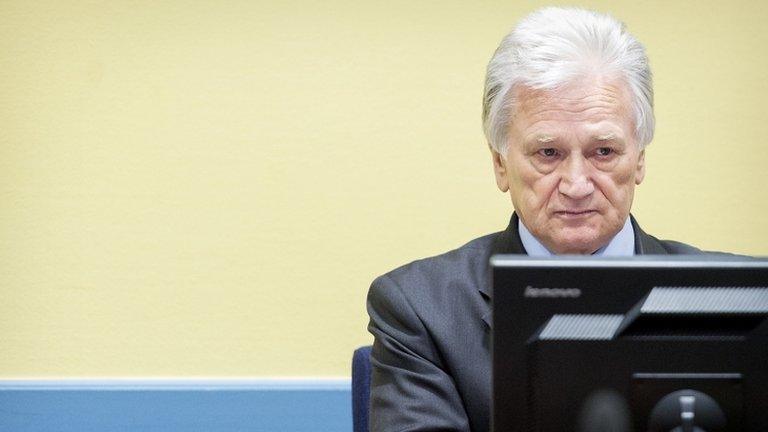Dutch Srebrenica ruling: The wider impact
- Published
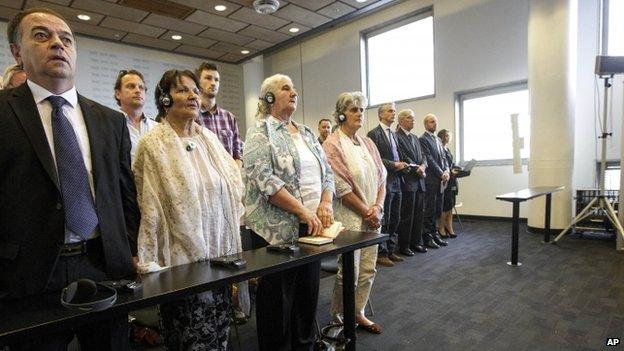
The case is yet another development in a continuing debate about the UN's relationship with the conventions of international humanitarian law
Lawyers, politicians and generals alike will be looking with great interest at a ruling by a Dutch court that the Netherlands is liable over the killings of more than 300 Bosniak (Bosnian Muslim) men and boys at Srebrenica in Bosnia-Hercegovina in July 1995, writes Media and Criminal Justice Professor Jon Silverman.
As ever with legal rulings, the devil is firmly in the detail.
It appears that the judges of the Hague district court made a distinction between the 300 Bosnian Muslims who were expelled from the UN compound before air support was requested and those, the vast majority, who were expelled later and subsequently murdered by Serb forces.
Why is the issue of air support important? Because the failure to provide it was held to be a direct responsibility of the UN - not the Netherlands Dutchbat peacekeeping force and, standing behind it, the state.
'Important precedent'
Relatives of the victims, campaigning as the "Mothers of Srebrenica", believe this is an artificial distinction and have already said they will appeal.
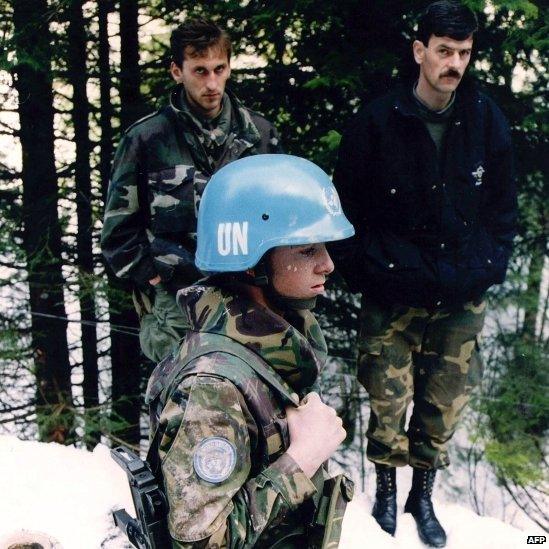
The UN declared Srebrenica a "safe area" for civilians in 1993. It fell in July 1995, after more than two years under siege
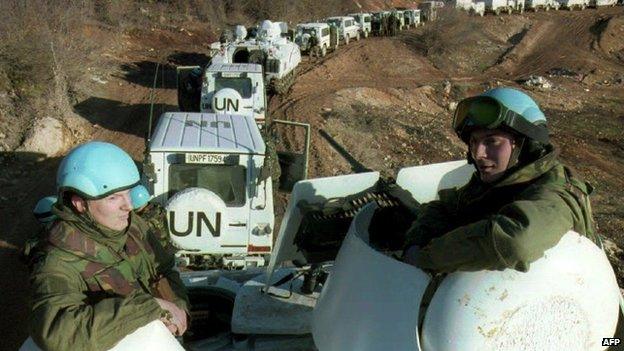
A battalion of Dutch peacekeepers was stationed at Srebrenica and its surrounding area at the time of the killings
The Dutch international criminal defence lawyer, Jozef Rammfelt, said the judgment had the potential to be of great significance.
"Admittedly, this is a ruling of a lower court, but it follows a ground-breaking judgment of the Netherlands Supreme Court in 2013 that the state is liable to pay compensation for the victims of genocide," he said.
"This set an important precedent that countries providing troops for UN peacekeeping operations can be held legally responsible for their actions. Other states around the world will have to take note and I imagine they will think twice about their legal liabilities."
In the context of international law, this is yet another development in an ongoing debate about the UN's relationship with the conventions of international humanitarian law.
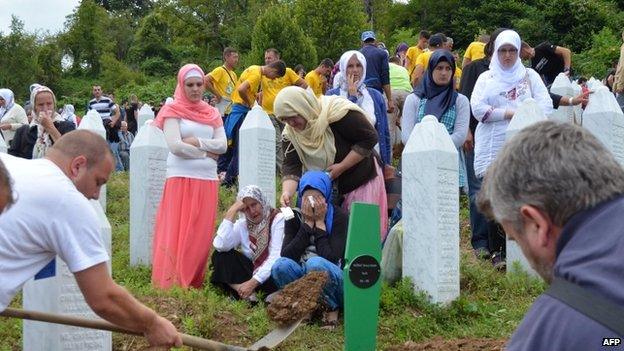
The Muslim-majority town was a UN-protected area besieged by Serb forces throughout the war
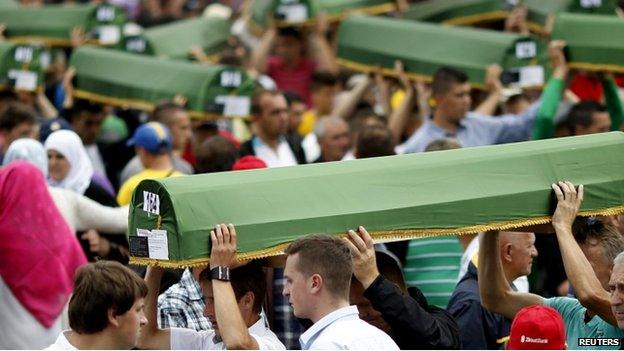
The court stopped short of holding the Netherlands liable for the fate of the majority of men killed in Srebrenica
According to the UN, when states assign troops to peacekeeping duties, the forces answer solely to the Security Council.
And the UN Security Council is not a party to the Geneva Conventions and its various protocols.
For at least two decades, this has provoked tension with bodies such as the International Committee of the Red Cross, and in the absence of a controlling international legal regime and with sometimes ambiguous mandates, the burden of responsibility falls on field commanders on the ground.
The Hague court ruling means that there is a growing acceptance that an individual state can be held liable for deaths in a UN-mandated operation.
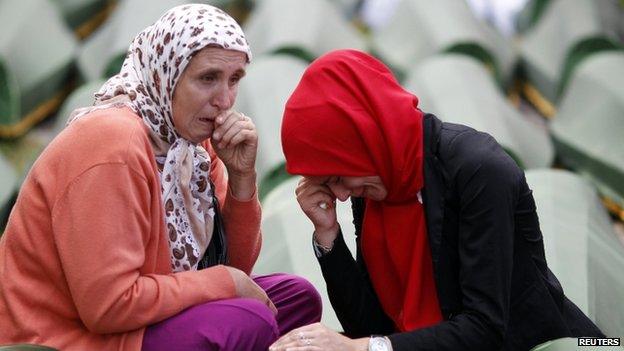
It was a heartbreaking ruling for many bereaved women of Srebrenica, because the Dutch state was only found partly responsible for the deaths of 300 of the more than 7,000 men killed
Professor Philippe Sands, of University College, London, argues that while the Srebrenica massacre has been accepted by international jurisprudence as an act of genocide "it is potentially very significant that the Hague court has ruled that the Dutchbat force should have been aware that a genocide might be perpetrated".
Prof Sands is representing Croatia in a suit against Serbia for genocide during the 1991-95 conflict.
After last year's Supreme Court ruling that the Dutch state was liable for the deaths of three Bosnian Muslim men expelled from the UN compound and subsequently killed, the government offered 20,000 euros ($27,000;£16,000) to each of the victims' relatives.
This latest ruling will require a far larger amount to be paid out. But it is the consequences for existing and future UN peacekeeping operations where the true impact may be felt.
Jon Silverman is Professor of Media and Criminal Justice at the University of Bedfordshire.

Timeline of Srebrenica siege:
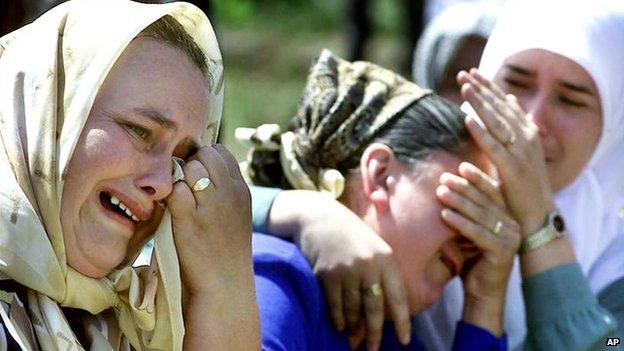
6-8 July 1995: Bosnian Serb forces start shelling Srebrenica enclave
9 July: Bosnian Serbs step up shelling; thousands of Bosnian Muslim refugees flee to Srebrenica
10 July: Dutch peacekeepers request UN air support after Bosnian Serbs shell Dutch positions. Large crowds of refugees gather around Dutch positions
11 July: More than 20,000 refugees flee to main Dutch base at Potocari. Serbs threaten to kill Dutch hostages and shell refugees after Dutch F-16 fighters bomb Serb positions. Bosnian Serb commander Ratko Mladic enters Srebrenica and delivers ultimatum that Muslims must hand over weapons
12 July: An estimated 23,000 women and children are deported to Muslim territory; men aged 12-77 taken "for interrogation" and held in trucks and warehouses
13 July: First killings of unarmed Muslims take place near village of Kravica. Peacekeepers hand over some 5,000 Muslims sheltering at Dutch base in exchange for the release of 14 Dutch peacekeepers held by Bosnian Serbs
14 July: Reports of massacres start to emerge

- Published16 July 2014
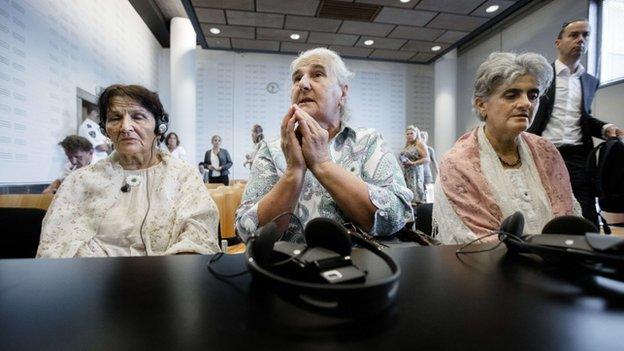
- Published16 July 2014
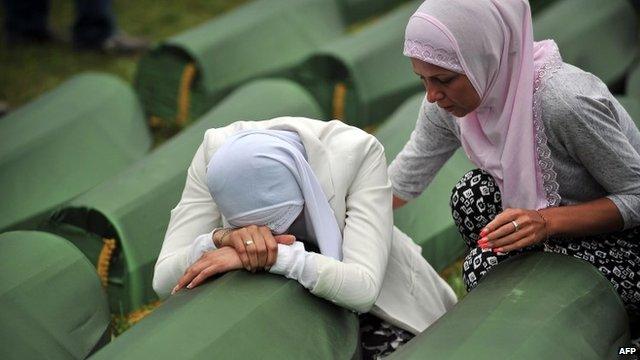
- Published6 September 2013
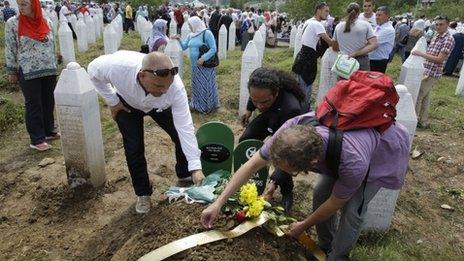
- Published9 July 2012
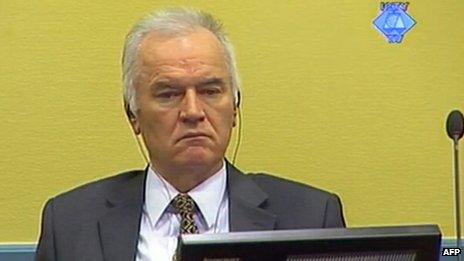
- Published15 April 2014
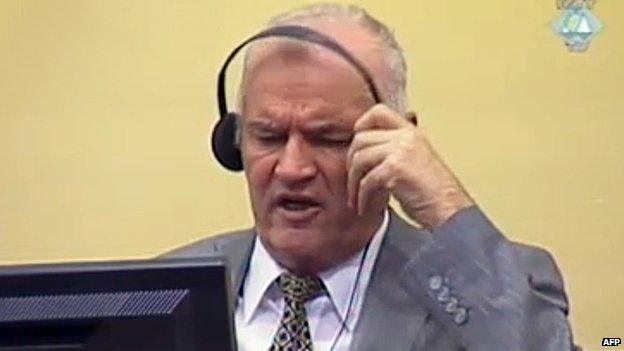
- Published28 February 2013
